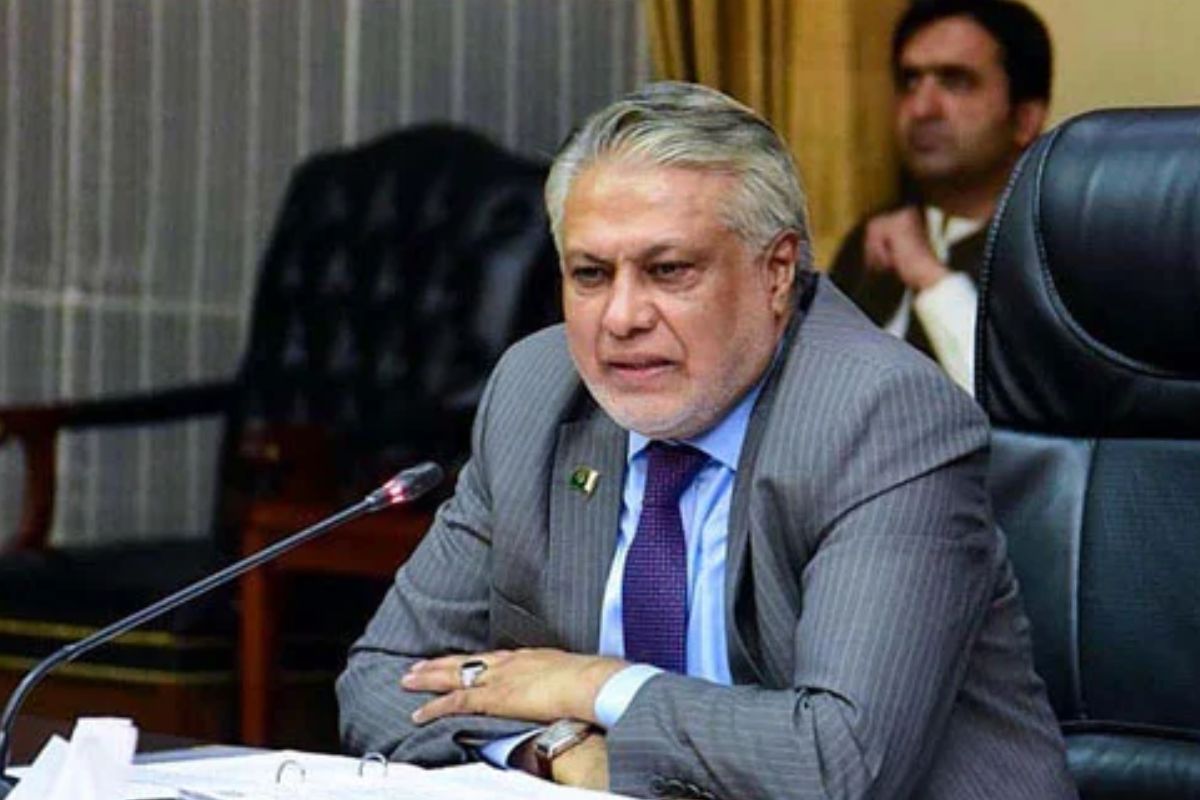


In a wise move by Prime Minister Shehbaz Sharif, he has appointed Ishaq Dar to the position of Pakistan’s foreign minister. Dar, a seasoned politician with extensive experience in managing the country’s financial affairs, will now be responsible for representing Pakistan’s interests on the global stage. He is a prominent figure in the Pakistan Muslim League-Nawaz (PML-N) party and enjoys a close relationship with former Prime Minister Nawaz Sharif. Dar’s expertise in finance and economics makes him well-suited for this crucial role, where he will bring valuable knowledge and skills to advance Pakistan’s diplomatic efforts.
Table of Contents
ToggleIshaq Dar, who comes from Kashmiri heritage and is a certified accountant, has been the finance minister four times. This shows that he knows a lot about money and how it works in the country. Even though he doesn’t have much experience in dealing with other countries, his job as finance minister shows how important it is to use money to make friends and deals with other countries. As a top member of the PML-N political party, Dar has focused on making the country’s economy better and keeping it stable
Dar is facing a big problem because of the not-so-good economic relationship between Pakistan and India. This problem got even worse when India decided to take away the special status of Jammu and Kashmir in August 2019. This decision caused the trade between Pakistan and India to stop, and it hurt Pakistan’s economy. Dar is someone who knows a lot about economics, and he has always said that it’s important to keep doing business with India. But because the issue of Kashmir has been going on for a long time and is still not solved, it’s been hard to make any progress in improving the economic relationship between the two countries.
Dar’s position agrees with what Pakistan usually says, which is all about solving the problem in Kashmir based on what the United Nations Security Council decided. He repeated Pakistan’s promise to help the people of Kashmir decide their own future on Kashmir Solidarity Day. This promise is based on the UN rules and resolutions that acknowledge the right of people to choose their own destiny.
India aims to maintain positive connections with its neighboring countries, and that includes Pakistan. Nevertheless, India strongly believes that Jammu and Kashmir is a crucial part of its land. The Minister of External Affairs, S Jaishankar, emphasizes the significance of engaging in peaceful talks with Pakistan, avoiding any acts of terrorism, hostility, or violence. However, due to this differing perspective, it becomes challenging for India and Pakistan to collaborate on economic initiatives.
In addition to Dar’s appointment, Prime Minister Shehbaz Sharif has formed a comprehensive cabinet, assigning various portfolios to key ministers. Khawaja Muhammad Asif takes on the role of minister for defense, defense production, and aviation. Ahsan Iqbal will lead the ministry for planning, development, and special initiatives. Azam Nazeer Tarar assumes the responsibilities of law and justice, as well as human rights. Attaullah Tarar steps into the role of minister of information and broadcasting.
Let’s talk about Shaza Fatima Khawaja. She’s been picked as the minister of state, and that’s a big deal because she’s the only lady minister in the whole cabinet. Now, this cabinet is like a team, made up of folks from all sorts of backgrounds, and they’ve got tons of experience under their belts. They’re all set to tackle the tricky issues that are on the horizon, especially when it comes to dealing with other countries and keeping our relationships with them in check.
As the recently appointed foreign minister of Pakistan, Ishaq Dar has a daunting task ahead of him. He must carefully juggle Pakistan’s economic objectives while also considering its role on the world stage. One significant challenge he faces is determining the best approach to address the longstanding Kashmir conflict, which holds immense importance for Pakistan. The decisions Dar makes regarding economic diplomacy will significantly impact Pakistan’s relationships not only with India but also with its neighboring countries.
During Ishaq Dar’s leadership in Pakistan, the country’s successes in its interactions with other nations were largely influenced by how effectively it managed its economic ties, engaged in strategic discussions with India, and coordinated with a talented team of government officials. Despite facing notable challenges, the recent administration stands poised to navigate the complex realm of international relations and pave the way for a promising future for Pakistan by adopting a resolute and collaborative approach.

